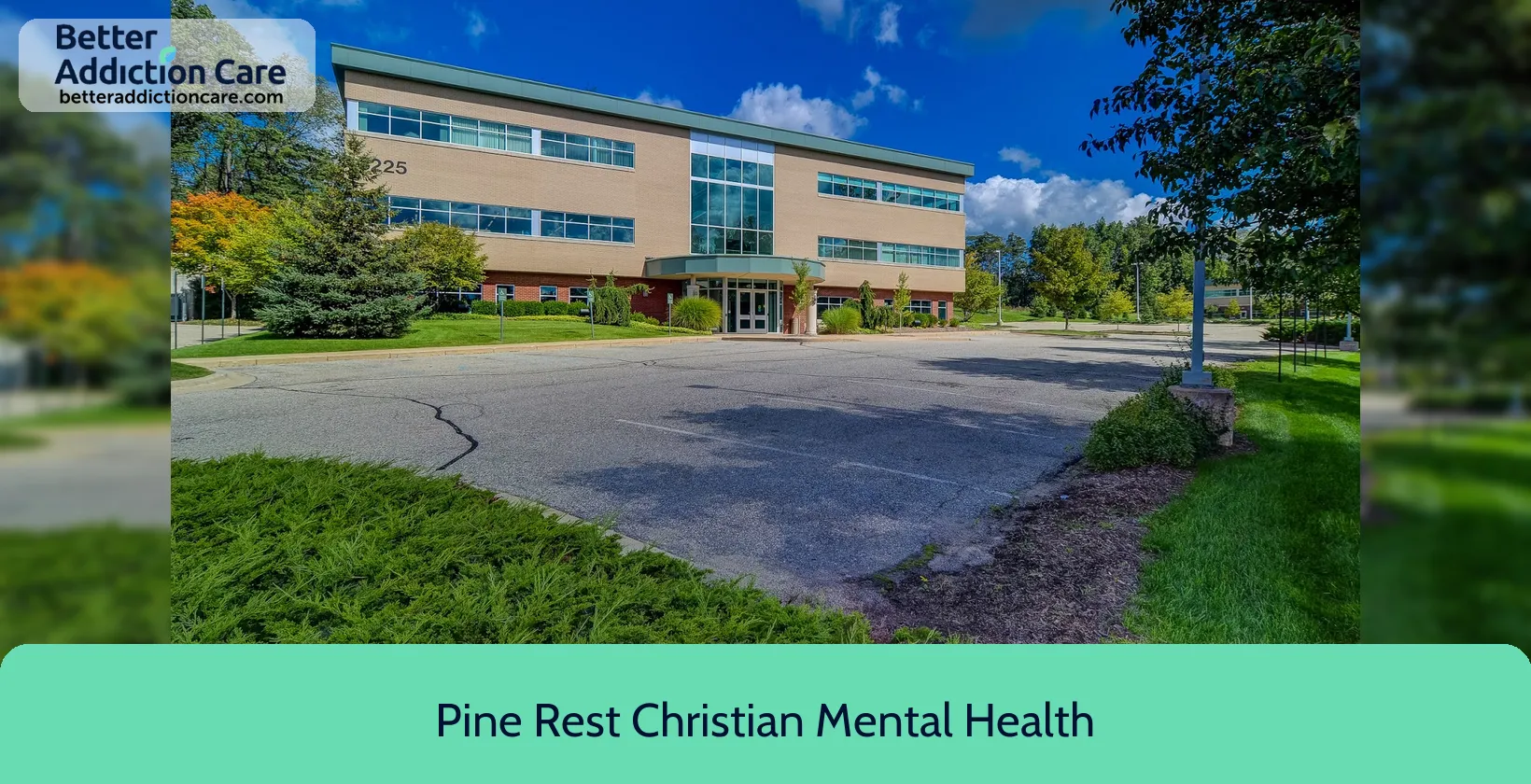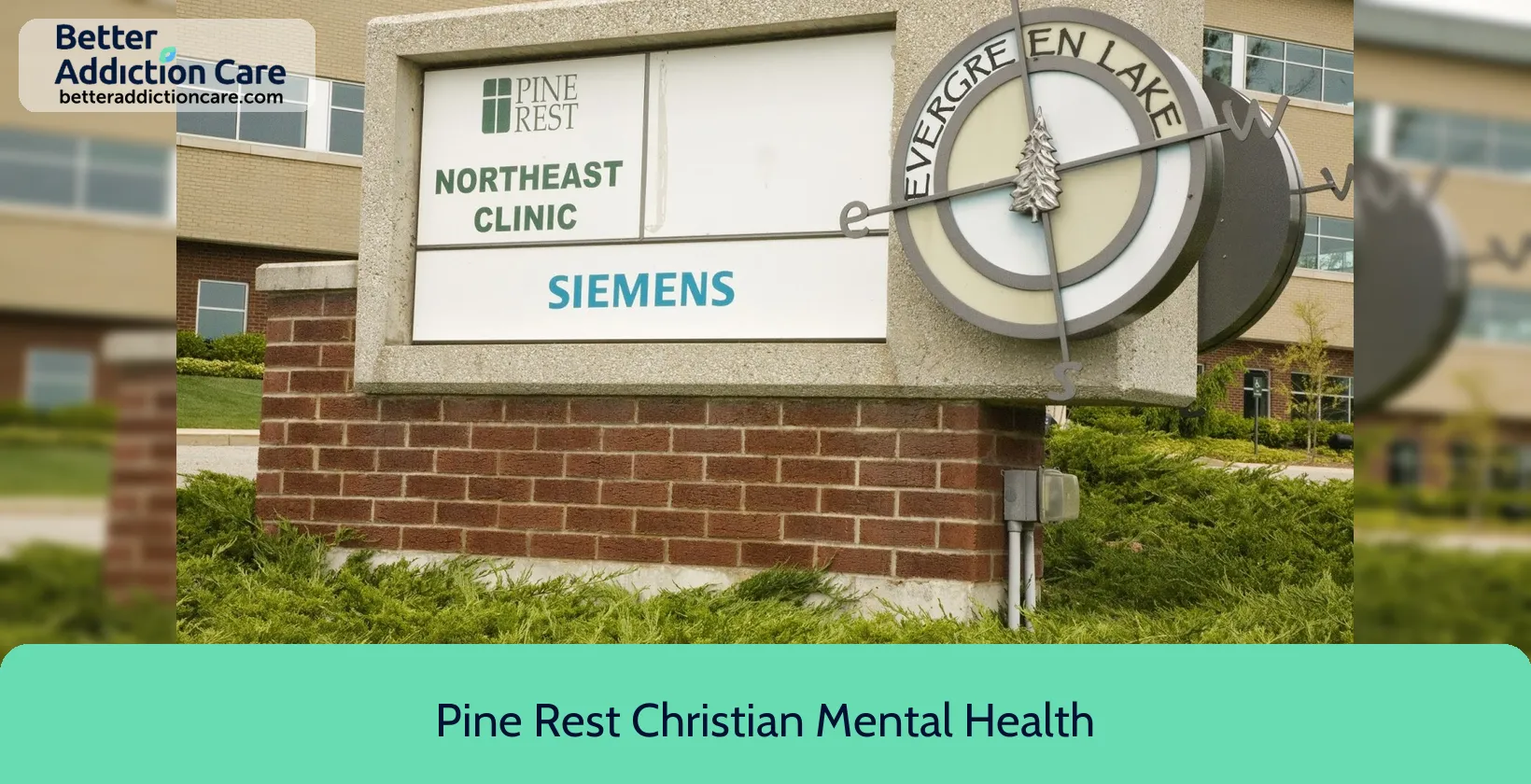Pine Rest Christian Mental Health Services - Northeast Clinic
Overview
Pine Rest Christian Mental Health Services - Northeast Clinic is a substance abuse treatment center for people seeking treatment near Kent County. As part of their treatment modalities for recovery, Pine Rest Christian Mental Health Services - Northeast Clinic provides couples/family therapy, group counseling, and cognitive behavioral therapy during treatment. Pine Rest Christian Mental Health Services - Northeast Clinic is located in Grand Rapids, Michigan, accepting cash or self-payment for treatment.
Pine Rest Christian Mental Health Services - Northeast Clinic at a Glance
Payment Options
- Cash or self-payment
- Medicare
- State-financed health insurance plan other than Medicaid
- Private health insurance
- Federal military insurance (e.g., TRICARE)
Assessments
- Screening for tobacco use
- Comprehensive mental health assessment
- Comprehensive substance use assessment
Age Groups
- Children/adolescents
- Young adults
- Adults
- Seniors
Ancillary Services
- Court-ordered outpatient treatment
- Suicide prevention services
Highlights About Pine Rest Christian Mental Health Services - Northeast Clinic
6.68/10
With an overall rating of 6.68/10, this facility has following balanced range of services. Alcohol Rehabilitation: 8.00/10, Drug Rehab and Detox: 6.00/10, Insurance and Payments: 6.00/10, Treatment Options: 6.73/10.-
Alcohol Rehabilitation 8.00
-
Treatment Options 6.73
-
Drug Rehab and Detox 6.00
-
Insurance and Payments 6.00
Accreditations
The Joint Commission:

The Joint Commission, previously known as JCAHO, is a nonprofit organization that accredits rehabilitation organizations and programs. Established in 1951, its mission is to enhance the quality of patient care and showcase excellence in healthcare delivery.
Treatment At Pine Rest Christian Mental Health Services - Northeast Clinic
Treatment Conditions
- Alcoholism
- Mental health treatment
- Substance use treatment
- Co-occurring Disorders
Care Levels
- Outpatient
Treatment Modalities
- Couples/family therapy
- Group counseling
- Cognitive behavioral therapy
- Telemedicine/telehealth therapy
- Smoking/vaping/tobacco cessation counseling
Contact Information
Read our Most Recent Article About Drug Addiction
DISCLAIMER: The facility name, logo and brand are the property and registered trademarks of Pine Rest Christian Mental Health Services - Northeast Clinic, and are being used for identification and informational purposes only. Use of these names, logos and brands shall not imply endorsement. BetterAddictionCare.com is not affiliated with or sponsored by Pine Rest Christian Mental Health Services - Northeast Clinic.










